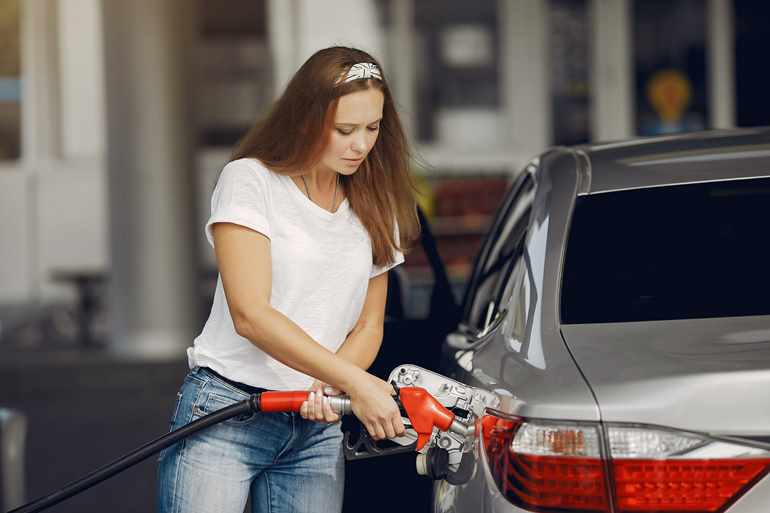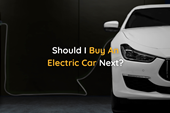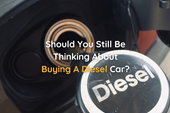
Why is diesel being banned?
Why And How Will Diesel Be Banned In The UK? Find Out In Our Latest Blog...
As the UK works towards a 2050 net zero target, one of the main aims is to phase out petrol and diesel cars in exchange for those that run on energy that does not pollute the environment as significantly. With this in mind, zero-emissions vehicles such as electric cars are becoming more mainstream, and diesel cars are being banned in 2030. But what does this mean for those with diesel vehicles, and why is diesel being banned? We explore the realities and reasons behind this sudden shift and look at how you can prepare for it.
What is the ban?
The ban on diesel and petrol vehicles applies to new cars and will go into effect in 2030 - just eight years from now. The UK government has stated that hybrid cars that run on both diesel/petrol and electricity will continue to be sold until 2035. The ban will initially only impact cars but will be rolled out to other types of vehicles as time goes on.
"After 2030, only the sale of new cars powered by diesel will be illegal."
Why is this ban happening?
The anticipated ban on the sale of new diesel and petrol cars is necessary in order for the UK to reduce its carbon emissions. One of the largest contributors to climate change is believed to be carbon dioxide, which is emitted in large amounts by vehicles that run on diesel engines. This ban is just part of the UK government’s strategy to reduce emissions and reach net zero by the agreed 2050 date.
Is diesel more harmful than petrol?
While both petrol and diesel vehicles are being phased out, diesel vehicles have been less popular than petrol engines for a while, due to a few notable factors. For example, diesel cars are often pricier to purchase, and the fuel itself can also be more costly for drivers. Servicing for diesel vehicles is also typically more expensive, and you may pay more for insurance. For the purposes of meeting net zero goals, diesel engines are also believed to produce more nitrogen dioxide (NO2), which is harmful to the environment overall.
When exactly will diesel vehicles stop being sold?
While technically new petrol or diesel cars could be sold up until the exact agreed date of the ban, in reality, it is likely that most car manufacturers will have shifted to producing mainly electric vehicles (EVs) in order to meet the new legislation. Most manufacturers are already anticipating this shift and are working on creating more zero-emissions vehicles powered by batteries, with an eye to replacing current collections with EV-only collections by 2030. Some manufacturers, such as Hyundai, are also investigating options aside from battery-powered vehicles, such as fuel cell vehicles.
Will driving diesel cars be illegal?
After 2030, only the sale of new cars powered by diesel will be illegal. Driving a diesel or petrol car that you already own will be accepted, however, it is worth considering that these cars are likely to face higher taxes and charges for entering low emissions zones (LEZ) or clean air zones (CAZ). You will probably also find that fuel prices will continue to rise, and filling up your diesel car will overall be more expensive than switching to an EV. There are some discussions about the possibility of transitioning to zero or low emissions synthetic fuels over fossil fuels, though such plans are in their infancy, and diesel and petrol will still be available to purchase as of now.
What about keeping cars powered?
If you are seriously considering purchasing an electric vehicle, then you may be wondering about how easy it will be to charge your car in 2030 and even earlier. It is currently challenging to charge your EV reliably when you are away from home. However, the infrastructure for electric cars is improving, with plans for more public charging points along major motorways and in suburban areas, so charging an electric car should be as easy as filling up with diesel is now, with a more reliable speed for drivers.
Climate change is an ongoing battle, and the banning of diesel is a vital part of the net zero strategy. With both diesel and petrol cars becoming unavailable to purchase new in 2030, now is a good time to begin looking into electric vehicles. If you are considering purchasing an electric vehicle, then having it fully covered in all circumstances is essential. We offer EV GAP insurance so you can get the same high level of protection as with a petrol or diesel vehicle - so get in touch to discuss your options.












